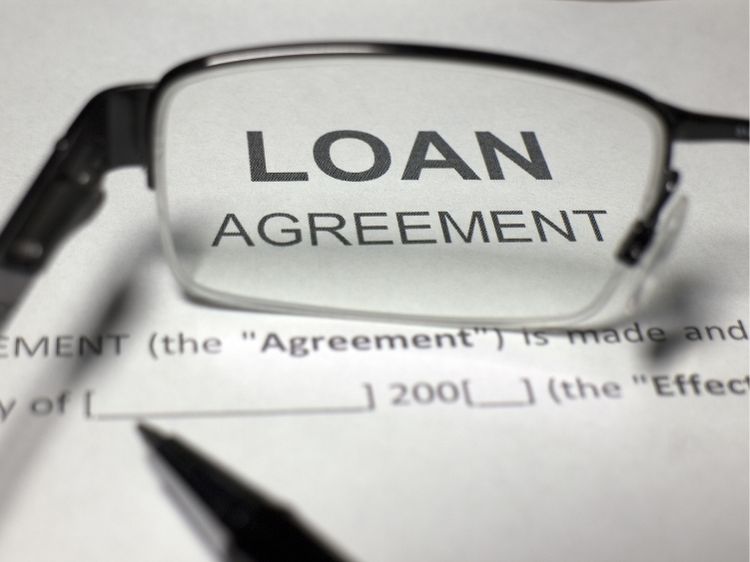What is a Payday Loan?
A payday loan is a type of short-term loan designed to cover immediate expenses until your next payday. It’s quick, convenient, and, in many cases, accessible to those with low credit scores. Typically, payday loans are smaller in amount, ranging from $100 to $1,000, and come with high interest rates. The goal is to help borrowers cover urgent expenses, like medical bills, car repairs, or utility payments, when cash flow is tight.
How Do Payday Loans Work?
Payday loans work on a straightforward principle. Here’s a quick rundown:
- Application Process: You fill out a brief application online or at a payday loan store, detailing your income and employment status.
- Approval: Once approved, you receive the loan amount, often within 24 hours.
- Repayment: Typically, the loan must be repaid by your next payday, which can range from two to four weeks.
Because these loans are often used in emergencies, they have flexible requirements, making them available even for those with poor credit scores. However, these loans are high-interest, meaning they’re costly if not paid off quickly.
Pros and Cons of Payday Loans
Payday loans have their place, but they’re not for everyone. Understanding their pros and cons can help you decide if it’s the right choice.
Pros
- Quick and Easy Access: Payday loans don’t require a lengthy application process.
- No Credit Check: Many payday lenders skip credit checks, making it accessible for individuals with low credit scores.
- Convenience: Many payday loan providers offer online applications, which can be completed from home.
Cons
- High Interest Rates: Interest rates on payday loans can be exorbitant.
- Short Repayment Period: Borrowers must repay the loan by their next paycheck, making it easy to fall into a cycle of borrowing.
- Potential for Debt Cycle: Many people take out additional loans to cover previous ones, leading to a debt spiral.
Common Uses for Payday Loans
Payday loans are often used for immediate, unexpected expenses. Some common uses include:
- Emergency Medical Expenses: Covering doctor’s bills, prescriptions, or urgent medical needs.
- Car Repairs: For when a vehicle needs urgent repairs to keep the borrower on the road.
- Utility Bills: To prevent services from being shut off due to unpaid bills.
- Unexpected Travel: For emergencies that require last-minute travel, such as a family illness or funeral.
Alternatives to Payday Loans
If a payday loan feels too risky, several alternatives might be worth considering:
- Personal Loans: Offered by banks and credit unions, these often have lower interest rates and longer repayment terms.
- Credit Cards: If you have available credit, a credit card cash advance might be cheaper than a payday loan.
- Borrowing from Friends or Family: This is often interest-free but requires open communication.
- Installment Loans: Some lenders offer loans with extended repayment plans, providing more manageable payments.
Who Should Consider a Payday Loan?
Payday loans aren’t for everyone. They’re best suited for individuals who:
- Need a small amount of cash quickly.
- Are confident they can repay the loan on their next payday.
- Don’t have access to lower-cost borrowing options.
If you’re in a tight spot and need immediate funds, payday loans might help bridge the gap. However, be cautious about the loan terms and any fees that might add up.
Frequently Asked Questions about Payday Loans
- Are payday loans legal?
Yes, payday loans are legal in most states, though regulations differ widely. Some states impose limits on loan amounts or interest rates, while others have outright banned payday loans. - How much can I borrow with a payday loan?
The amount varies by lender and state regulations but generally ranges between $100 and $1,000. - What happens if I can’t repay my payday loan on time?
If you can’t repay on time, most lenders offer a rollover option, allowing you to extend the loan period. However, this usually comes with additional fees, increasing the loan cost. - Do payday loans affect my credit score?
Most payday lenders don’t report to credit bureaus, so they won’t directly affect your credit score. However, some lenders might, and unpaid loans can eventually lead to collections, impacting your credit. - Are there alternatives to payday loans?
Yes, alternatives include personal loans, credit card cash advances, or borrowing from friends or family. Each option has its pros and cons, depending on your financial situation.
Conclusion
Payday loans can provide short-term relief during financial emergencies, but they come with high risks, including high interest rates and potential debt cycles. It’s essential to weigh the pros and cons and consider alternatives before deciding if a payday loan is the right choice for you. Remember, there are other ways to access funds, and a payday loan should be a last resort, not a go-to option.
Resources and Further Reading
- Federal Trade Commission (FTC) on Payday Loans: ftc.gov
- Consumer Financial Protection Bureau (CFPB): consumerfinance.gov
- National Consumer Law Center: nclc.org

